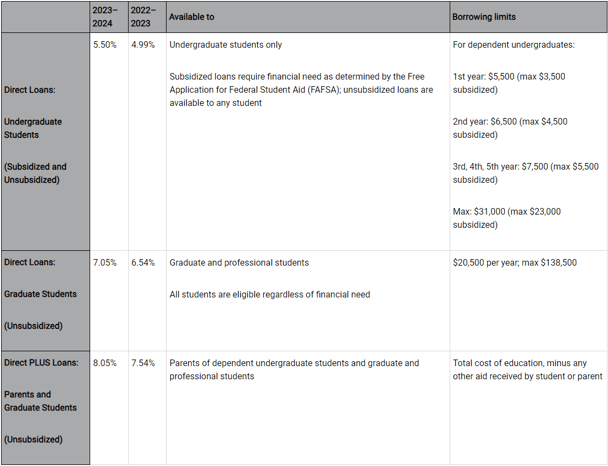Three important developments occurred recently in the world of federal student loans: the U.S. Supreme Court blocked an executive order offering loan cancellation to certain borrowers; Congress set an expiration date for the payment moratorium that has been in effect since March 2020; and new student loan interest rates have been set for the 2023–2024 school year. Here are the details.
Loan cancellation blocked
In August 2022, President Biden signed an executive order cancelling up to $10,000 of federal student loan debt ($20,000 for Pell Grant recipients) for borrowers with incomes below certain limits, a policy directive that made its way to the U.S. Supreme Court.1 On June 30, 2023, the Court announced its decision striking down that order, ruling that the Biden administration had overstepped its authority and that clear congressional authorization was required for mass debt cancellation.2 Nearly 26 million borrowers had applied under the order to have some of their debt erased.3
Payment pause ending
Also in June, as part of an agreement on the debt ceiling, Congress ordered an end to the student loan payment moratorium that has been in effect since the start of the pandemic in March 2020.4 The Department of Education subsequently clarified that federal student loan payments will resume beginning in October 2023, with interest scheduled to resume accruing in September.5
The resumption of monthly student loan payments after three-and-a-half years of pauses is likely to be a sobering reality for the millions of borrowers with student debt. According to the Education Department, 30 million borrowers deferred their federal loans during the payment moratorium, while about 300,000 kept paying.6

Higher interest rates for 2023–2024
Turning to new student loans, borrowing for college and graduate school will cost more for students and parents for the 2023–2024 academic year. Every May, interest rates on federal student loans are recalculated for the upcoming school year. The rates are determined by combining the yield on the 10-year U.S. Treasury note with an extra fixed amount set by Congress.
Based on this calculation, interest rates on federal student loans are set to increase for the 2023–2024 school year by about half a percent — the third straight year of increases. The rates apply to new federal student loans issued July 1, 2023, through June 30, 2024.7 The interest rate is fixed for the life of the loan.
Continued inflation has played a part in the higher rates, similar to last year. The Federal Reserve has initiated a rapid series of hikes in the federal funds rate since last May, and that has increased the yield on the 10-year Treasury note, which in turn has led to higher student loan interest rates. Higher interest rates mean paying off loans will cost more.
